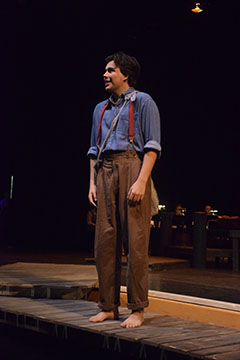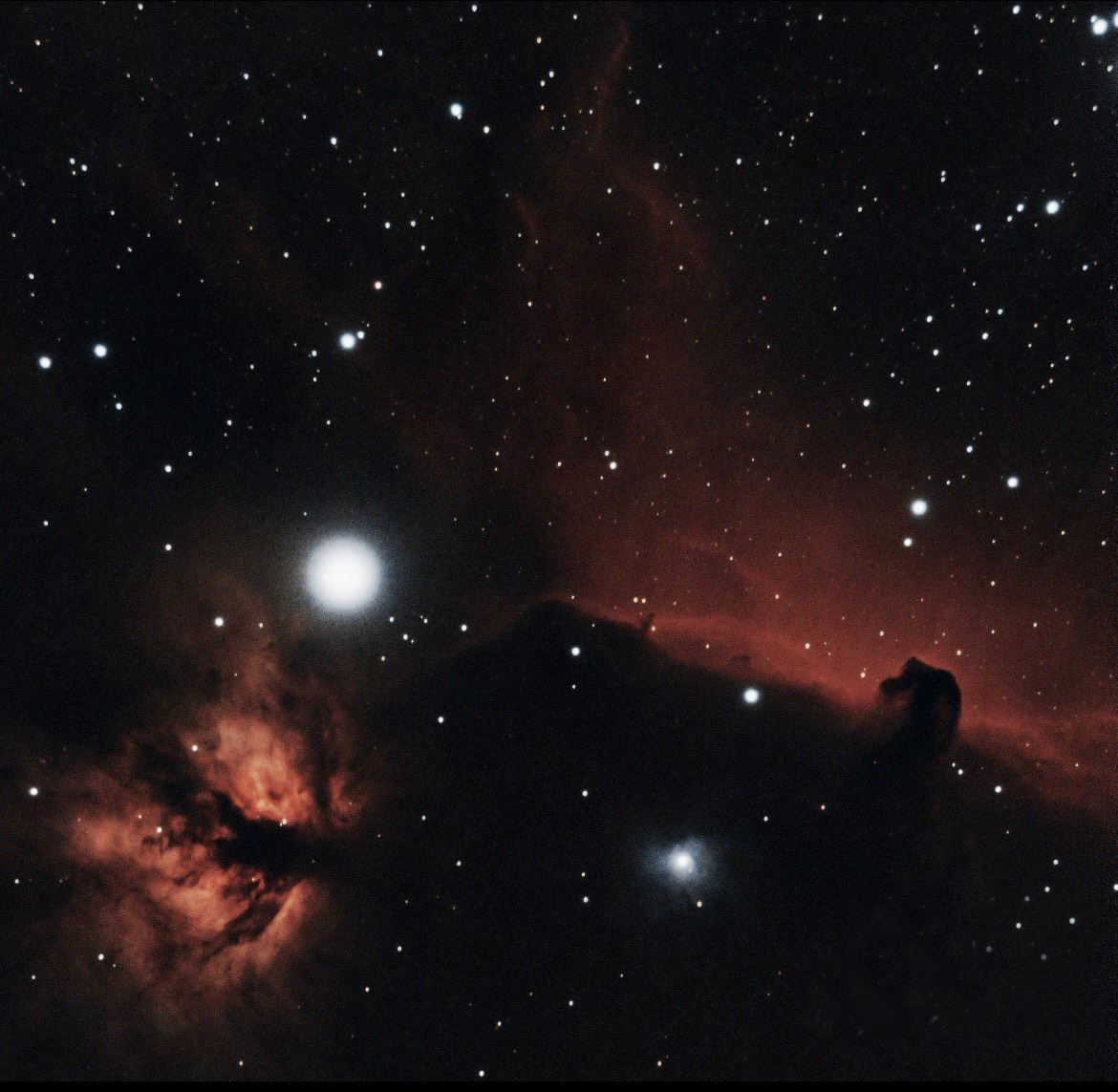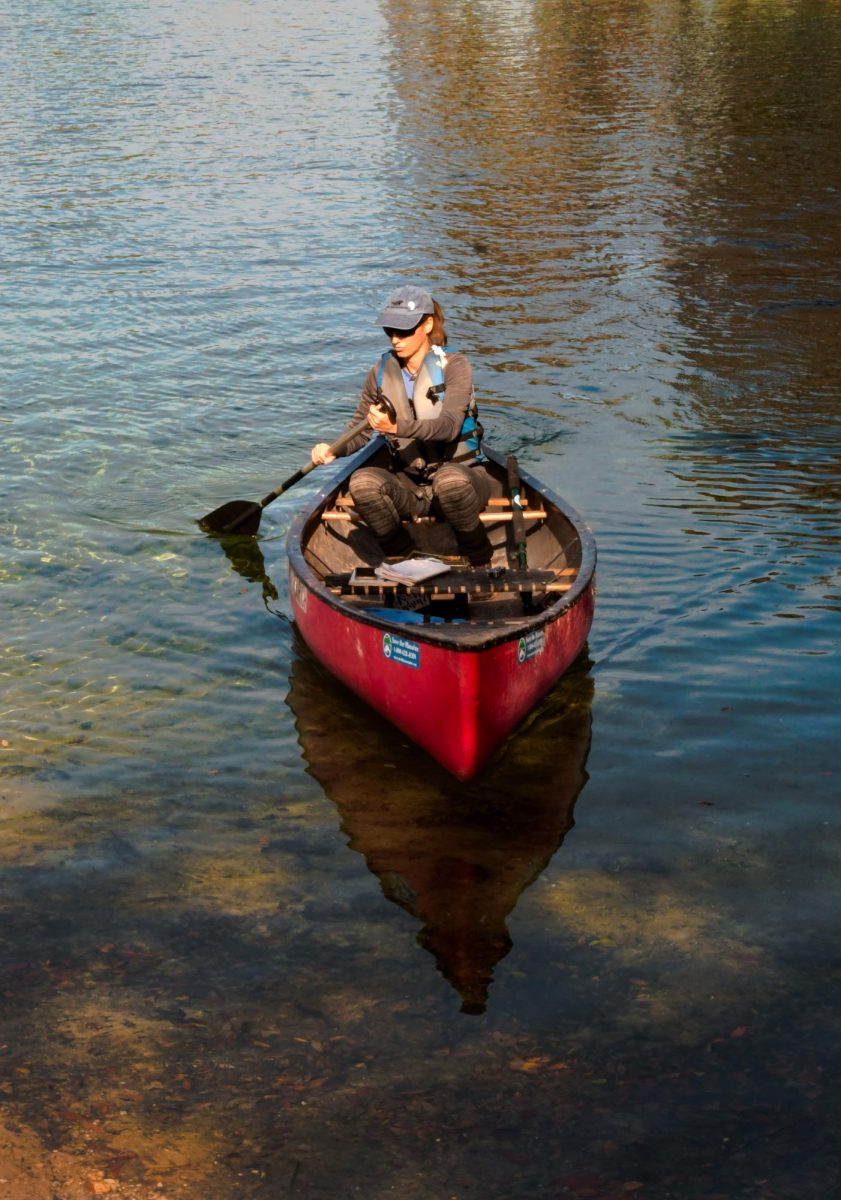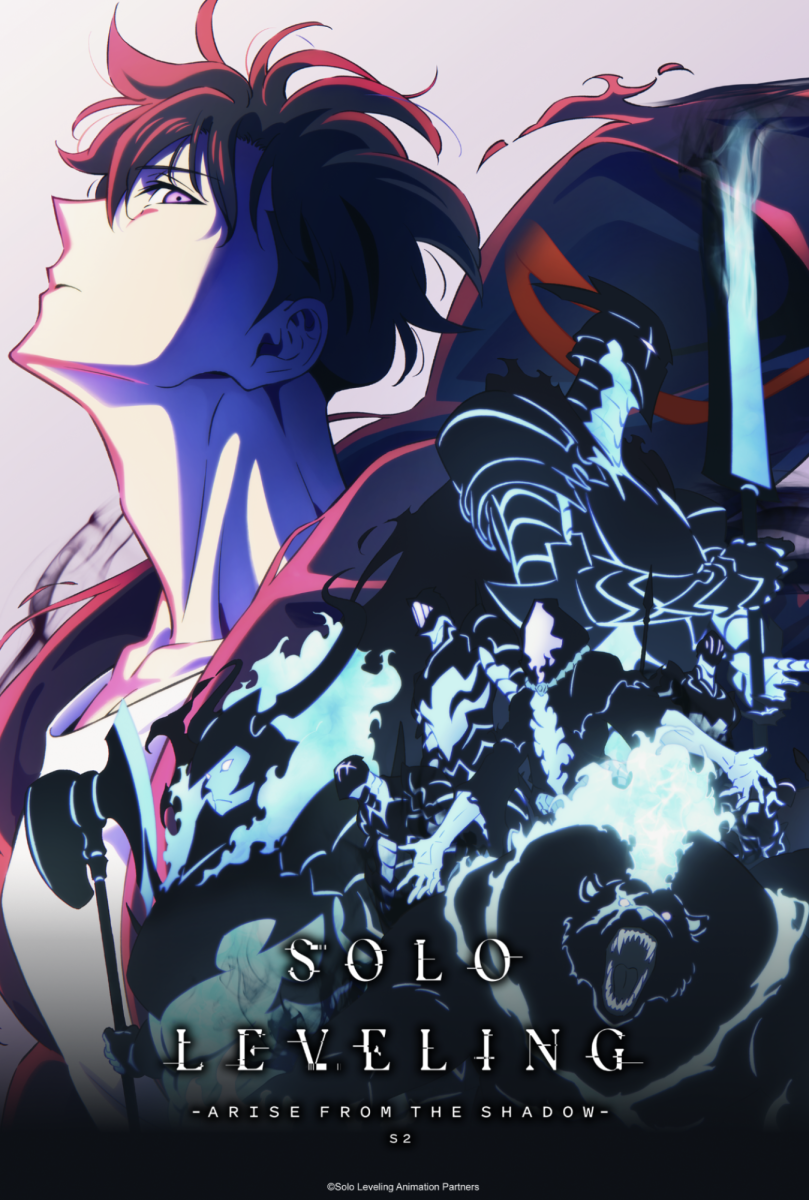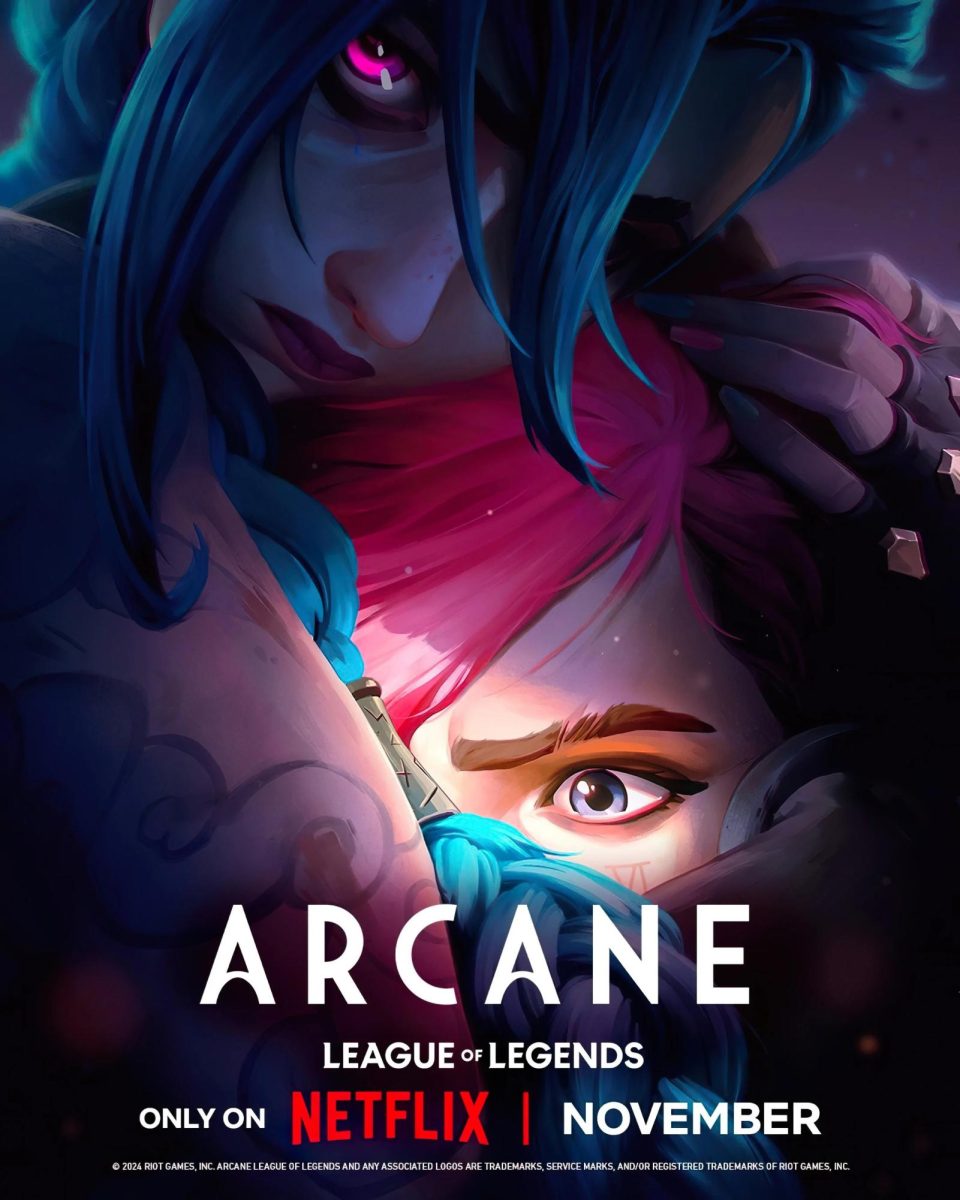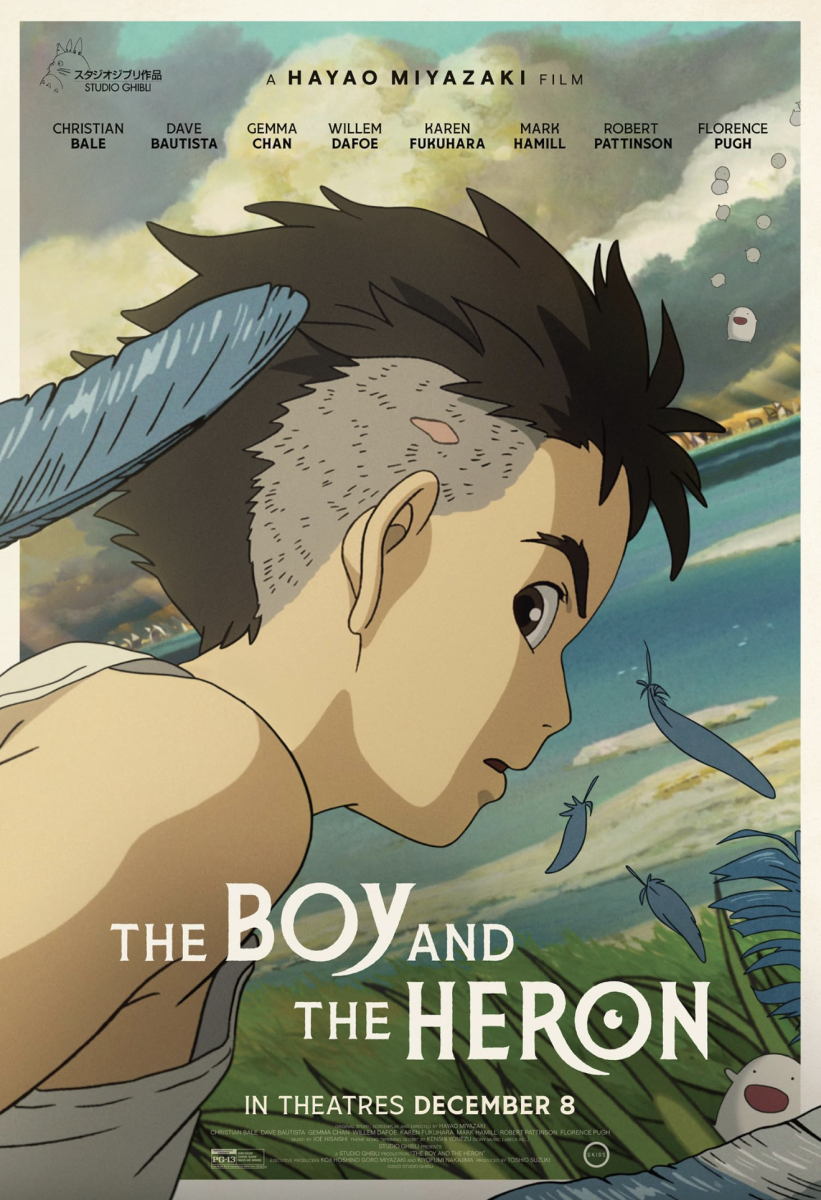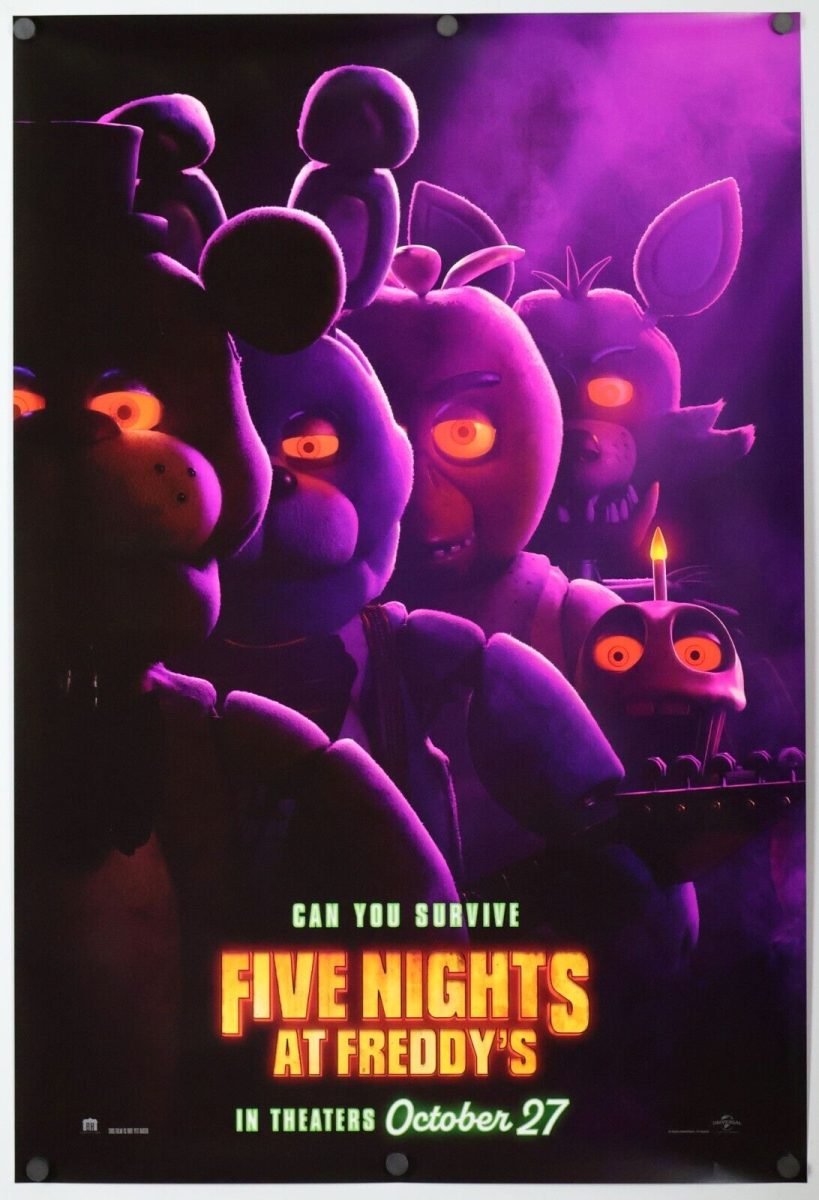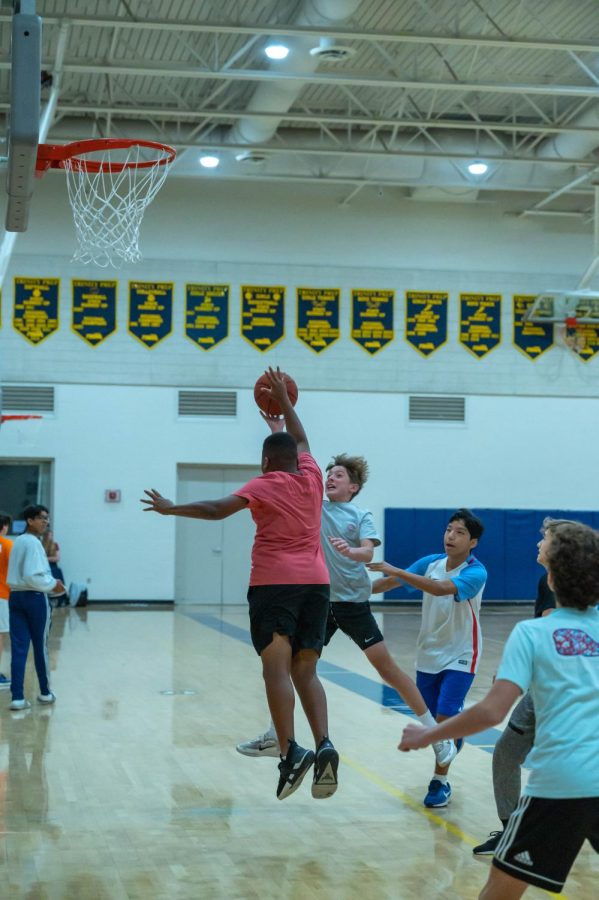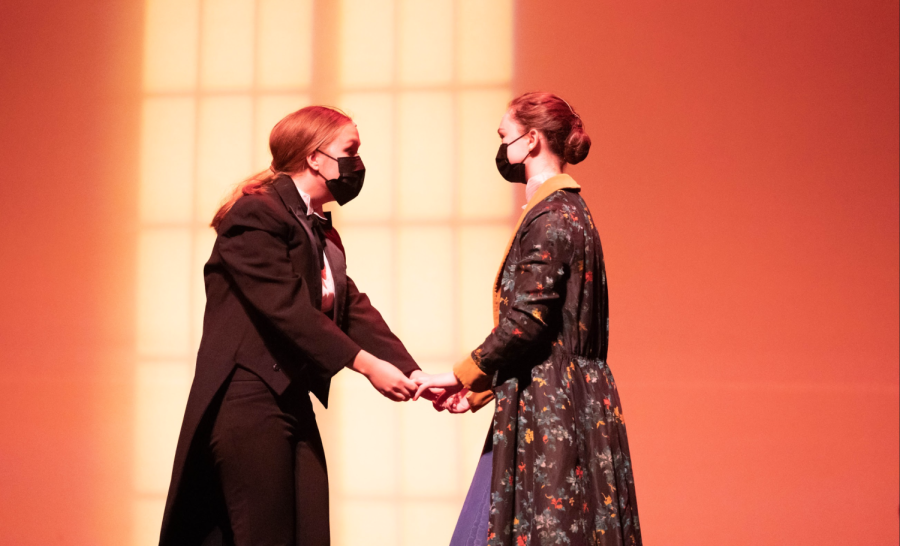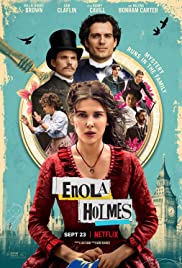Most of Trinity’s students should be very familiar with the plot of this year’s all-school musical, “Big River.” That is because the musical is based on Mark Twain’s “The Adventures of Huckleberry Finn,” which students read in 10th grade.
“The Adventures of Huckleberry Finn” has been banned from schools and libraries across the country due to its language and how it directly addresses racial issues. The story of the book (and play) is set in the southern United States before the Civil War. The protagonists are Huck, a boy escaping from his abusive father, and his friend Jim, a runaway slave. The story follows them as they attempt to escape up the Mississippi River to the north. However, their plan backfires, and they end up traveling deeper into slave country.
Throughout the story, Huck grapples with the fact that he is helping a slave escape to freedom, something that he has been told was evil his whole life. Huck fully believes that his actions will land him in Hell. At the climax, Jim has been recaptured, and Huck, overcome with guilt, nearly sends a letter to Jim’s former owner telling her where he was. However, he resolves to rescue Jim anyway. He says, “I was a-trembling, because I’d got to decide, forever, betwixt two things, and I knowed it. I studied a minute, sort of holding my breath, and then says to myself: “All right then, I’ll go to hell”—and tore it up. It was awful thoughts and awful words, but they was said. And I let them stay said; and never thought no more about reforming.”
“This story is important because it addresses a problem we haven’t solved yet,” said English teacher Sue Speicher, who has taught the book for more than 15 years. “People have become more sensitive to racially insensitive language, but the feelings behind that kind of language haven’t disappeared.”
Many of the issues discussed in the play, especially pertaining to slavery and racial discrimination, still exist today.
“It would be naive of me to suggest that the social issues surrounding this story are a thing of the past,” director Janine Papin wrote in her director’s note. “There are an estimated 20.9 million people trapped in some form of slavery today. Whether referred to as ‘Modern-Day Slavery’ or ‘Human Trafficking,’ it is, at all times, slavery at its core. Good theater inspires thought and reflection, and it is my hope that this show will inspire lots of discussion. And discussion can lead to action.”
Because of these themes, “The Adventures of Huckleberry Finn” has often been called “The Great American Novel.” It is difficult to do justice, especially by a high school production, but “Big River” did a good job.
“Before I saw it, I thought nobody could make a musical out of that book, but they did a good job,” Speicher said. “It was one of the better produced plays I’ve seen here.”
Papin hopes that her production can inspire thought about our country’s past and how we can use our knowledge of that past to shape the future.
“As a teacher and an artist, it is my hope that our individual differences can always inspire dialogue and thereby bring about understanding and clarity,” Papin said. “In that understanding we can develop compassion for the other, no matter how different we appear to be.”
However, the show also discusses important themes unrelated to race.
“I feel like it’s a story about friendship, and about how Huck and Jim come together when they’re both going through really difficult times and develop a strong bond,” sophomore Adede Appah-Sampong said. “I think it’s important because Jim is obviously trying to escape from slavery, and there’s still slavery today, so to bring attention to that is important as well.”
The show was powerful because of how closely the production paid attention to detail and tried to accurately depict the time period in which the story took place. The costumes and set were believable, and most of the actors learned accents to go with their parts.
Onstage, a band made up of Trinity students dressed in period attire played period music throughout the show. They played the opening number of both acts, which nicely set up the action to come.
The success of the show also depended greatly on the talent of the performers, and much of its authenticity stemmed from how its characters are played. Most actors put a lot of time into thinking about how to most effectively play their role in the production.
“I honestly tried to have fun during the rehearsal process,” said junior Liam O’Connor, who plays Huck. “I believe Huck is innocent and hasn’t been sculpted by society’s views yet. I saw a production of this show before I auditioned to understand it some more.”
“Honestly, it’s just practicing,” Appah-Sampong said. “The more you practice a song, the more you have a feel for it. That way, when performance time comes, I know exactly what I need to do.”
O’Connor looked to the book for guidance as well.
“Reading the book last year, as much as Mrs. Speicher would say I didn’t, definitely helped,” he said.
Papin also felt that the actors were able to effectively play their parts.
“My favorite moments of our production were when the actors had a real connection and honest moments,” she said. “I am always moved by sincere and emotionally resonate acting.”
The actors also performed a lot of difficult songs and nailed the harmonies. O’Connor’s favorite moment from the show was during one of these musical numbers.
“When Huck makes the realization that he’s going to steal Jim out of slavery again, everyone comes out on stage and joins me for ‘Waiting for the Light to Shine Reprise,’” he said. “During the 20 seconds when I stop singing, Adede and her gang walk down the steps. They have this little moment where they do gospel sways and Adede sounds wonderful. It’s that one little moment in the show that makes me smile every time.”
“Big River” ran from Dec. 1 through Dec. 4 in Trinity’s auditorium.




